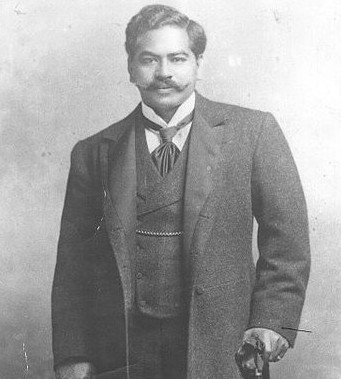Hawaii Supreme Court Heard Oral Argument on Hawaiian Homelands Funding

Prince Jonah Kūhiō Kalaniana‘ole spearheaded the passage of the Hawaiian Homes Commission Act. Wikimedia Commons photo.
Multiple parties presented oral argument to the Hawai‘i Supreme Court on July 7, 2017, regarding the obligations of the state under the Hawai‘i Constitution to provide funds to the state Department of Hawaiian Home Lands (DHHL).
On June 30, 2016, the executive branch appealed a circuit court’s decision in Nelson v. Hawaiian Homes Commission that ordered the state to appropriate more than $28 million to DHHL for the 2015-16 fiscal year on the grounds that it violated the separation of powers.
“The circuit court decision raised serious concerns regarding the separation of powers and whose job it is to determine DHHL’s administration and operating budget pursuant to the State Constitution,” Attorney General Chin said. “It is the exclusive role of the Legislature to appropriate funds. The role of the courts is to interpret the law and determine when it has been violated, not to decide on budgets. The justices today were well briefed on both sides of the issue and asked good questions.”
In 2007, three beneficiaries of the Hawaiian Homes Commission Act initiated this lawsuit, alleging that the State had inadequately funded DHHL. In 2016 a circuit court ordered the State to fulfill its duty under the State Constitution by appropriating “sufficient general funds” to DHHL for its FY 2015-16 administrative and operating budget. Governor David Ige then proposed, and state legislators appropriated $17.1 million for FY 2015-16 and $23.9 million for FY 2016-17 for DHHL’s administration and operating budget. The State’s appeal did not impact these appropriations and did not stop DHHL from spending this money.
At the oral argument, Senior Deputy Attorney General Charleen Aina argued for the state defendants and Mark Bennett from Starn, O’Toole, Marcus and Fisher argued for the State Legislature as amicus. Sharla Ann Manley, from the Native Hawaiian Legal Corporation argued for the plaintiffs. Melvyn Miyagi from Watanabe Ing argued for the Hawaiian Homes Commission and DHHL.
The court took the matter under advisement and will later issue a written opinion.
Prince Jonah Kūhiō Kalaniana‘ole spearheaded the passage of the Hawaiian Homes Commission Act. In response to the dwindling native Hawaiian population, Prince Kūhiō convinced Congress to create a rehabilitation program for Hawaiians. In 1921, with the enactment of the Hawaiian Homes Commission Act, the United States set aside approximately 200,000 acres of land to establish a permanent homeland for native Hawaiians, who were a landless and “dying” people.
Sponsored Content
Comments





_1770333123096.webp)


